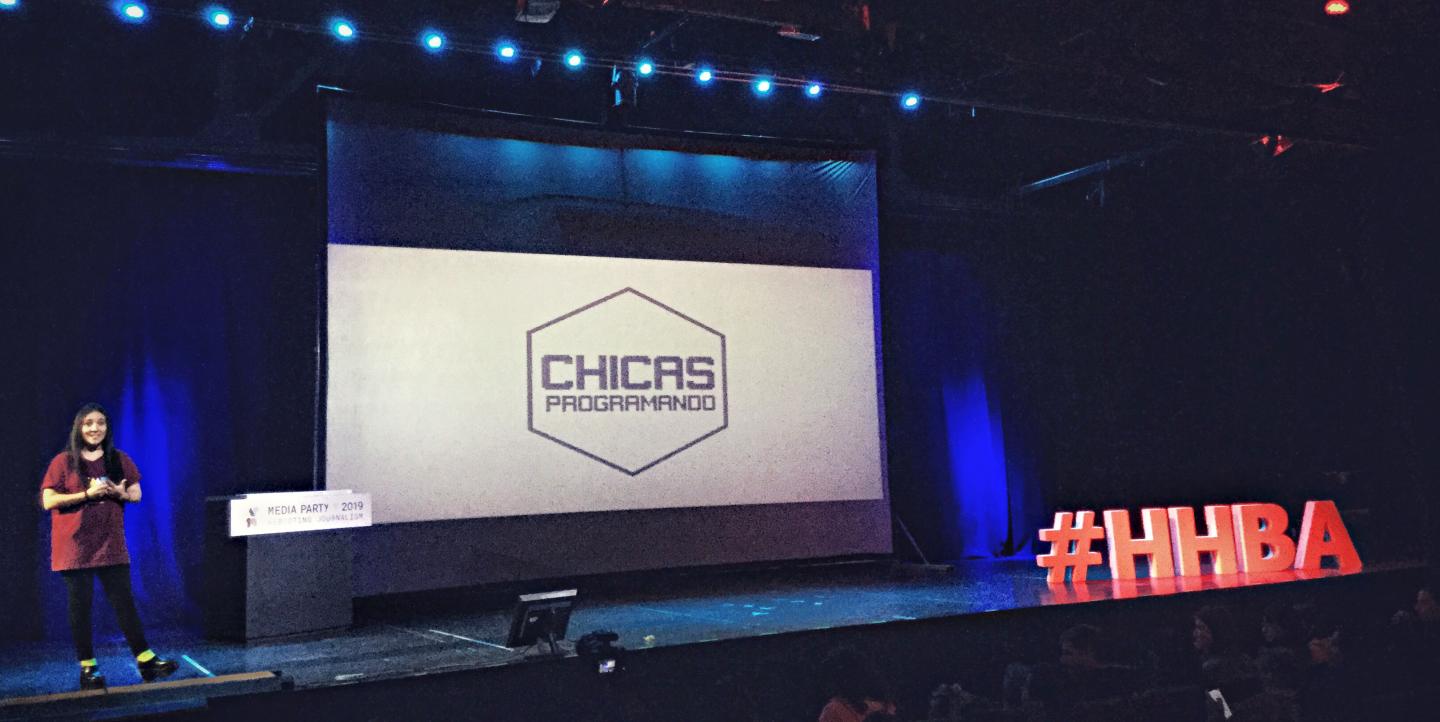Media Party was at it again this year. More than 2,500 students, journalists, designers, programmers, activists and individuals interested in media developments and innovation gathered in late August for this conference in downtown Buenos Aires to discuss, discover and influence the future of the journalism ecosystem.
The conference, founded by former ICFJ Knight Fellow Mariano Blejman and organized by the Hacks/Hackers local chapter, had a strong focus on disinformation, entrepreneurship and the gender gap this year. It also demonstrated — for the eighth year in a row — that journalism not only faces many challenges going forward, but that there is also reason for hope, contrary to what cynics and pessimists may claim.
As in previous years, Media Party invited innovative media professionals from all over the world to lead talks, presentations and workshops. Organizations represented included Vox Media, El Estornudo, ProPublica and Pictoline, among many others. IJNet also attended, leading a session on media entrepreneurship.
The conference also included keynote presentations and a Media Fair featuring dozens of news projects. The final day of the conference featured a hackathon, in which nearly 250 journalists and programmers participated.
One of Media Party’s most popular segments, the lightning talks, brought together hundreds of attendees. During these, presenters have five minutes to provide information about their respective projects, objectives and results. This year, top projects prioritized approaches on how to close the gender gap.
Below is a brief description of these initiatives.
A Traffic Light of Inequality
On average, women dedicate three more hours than men each day to housework.
To give visibility to this unpaid and unrecognized work, Argentinian fact-checking organization Chequeado, presented about their project, “Semáforo de la desigualdad,” ("A Traffic Light of Inequality"). In addition to interviews and data collection surrounding gender inequality, Chequeado included a physical, on-the-ground component in this effort. They erected a physical traffic light in downtown Buenos Aires, which was timed to allow men to cross the street more often than women. This sought to demonstrate the uneven domestic workloads and the time they consume, which hinder women’s advancement in the workplace.
Young women in programming
For more than 70 years, men have dominated the field of computer programming. But, things are changing.
Chicas programando (Young Women Programming) is a community of women programmers that works to empower other women interested in joining the profession. They promote a wide array of tech projects and provide trainings like “Elige tu propia aventura en tecnología,” (“Choose your own adventure in technology.") They also organize talks to help prepare colleagues for job interviews, and curate job opportunities in Buenos Aires and the surrounding region.
#EnResistencia (InResistance)
Chicas Poderosas Argentina presented about a mediathon they organized — #EnResistencia (InResistance) — to create collaboration spaces for women journalists.
Sponsored by the Google News Initiative, and with the participation of social organizations, 100 women worked together — many of them for the first time — on multimedia projects to give visibility to underrepresented stories. The result? Thirteen publications in national and regional media on dissident groups, indigenous women, child pregnancy and the youth vote, among others.
Metis
SembraMedia, a community of native digital media in Spanish, asked local women media entrepreneurs to identify the primary challenges they face. Among the most frequently mentioned were the absence of women in positions of leadership, the salary gap and security issues when reporting a story.
With the support of the Google News Initiative, SembraMedia launched Metis, an entrepreneurial coaching program to promote sustainability among women-led media in Latin America. More than 80 women entrepreneurs applied.
Bonus: A Safe Sex Emoji
Huésped, a renowned Argentinian organization, works to ensure access to health, while lessening the impact of diseases such as HIV/AIDS.
On the Media Party stage, Huesped announced its project to design a condom emoji to promote safe sex. If you’re interested in joining the initiative, you can email them at lab@huesped.org.ar.
Image: Lightning talk by Chicas Programando at the Hacks/Hackers Media Party 2019.


